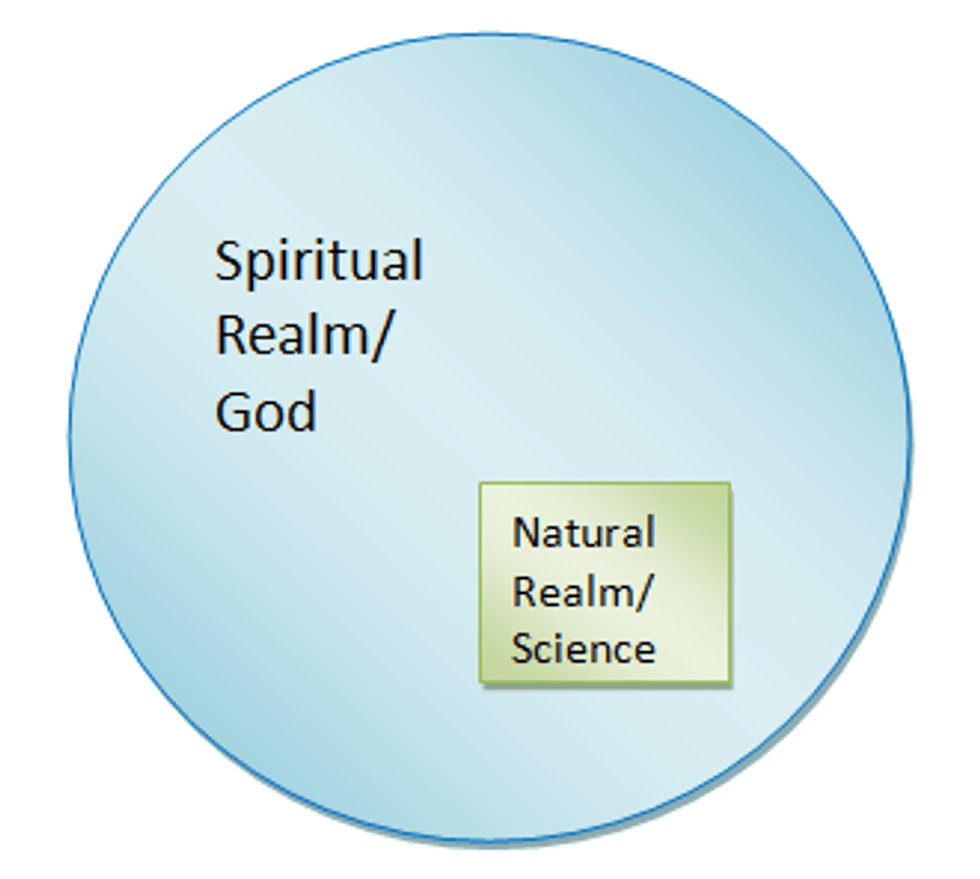“Why do you not believe in God?” One common answer is, “Science. Why is there a need for God, when science explains everything?” From the other side of the argument, believers often say that the science behind nature and its utter magnificence proves God’s existence. As a pre-Med student (taking two science classes per semester) and as a Christian, I feel a strong need to address this controversy.
I want to begin by saying that science most definitely does not prove the existence of God. But I would argue that it doesn’t disprove the existence of God either.
So what, exactly, is “science”? According to the Oxford Dictionary, science is “the intellectual and practical activity encompassing the systematic study of the structure and behavior of the physical and natural world through observation and experiment.” Merriam-Webster puts it into simpler terms: “knowledge about or study of the natural world based on facts learned through experiments and observation”. One concept that both definitions share is the idea of the “natural world”. We learn by studying science that it has very evident limits. There are things that simply cannot be quantified. For example, science cannot make a distinction between “good or bad” and “right or wrong”. It cannot define beauty, or say whether or not something is aesthetically pleasing. And science cannot examine spiritual explanations. This is because, of course, the spiritual realm is not in the same category as the “natural world”.
As my Biology professor put it, there is a spiritual realm and a natural realm. The natural realm is made up of physical and/or testable objects and sensations. There are birds, trees, mountains, foods, buildings, gravity, science, etc. Then there is the spiritual realm, which supersedes, and is greater than, the natural realm. The Christian God would exist within this spiritual realm as an omnipresent and omnipotent God. Meaning, He has power over everything, and is present everywhere, even inside of the natural world.
In order to perform a scientific study, there must be a testable hypothesis. Since God is not a physical entity within the “natural world”, the question, “Is God real?” cannot be tested. Science cannot rationally study the Spiritual Realm, thus, there is no logical scientific explanation for whether or not there is, or is not, a God.
Now to address science and the Bible. If you have read through the Bible you know that there are some scientific inconsistencies. There is one instance in Joshua where “the sun stood still…” This implies that the sun revolves around the Earth. Of course, now we know that the Earth revolves around the sun, but remember, this wasn’t discovered until 1543. The Bible is not a scientific book, but one of observation. They recorded what they observed. Its purpose was, and still is, to reveal who God is, His will for mankind, and His plan of redemption.
I said in the beginning that science doesn’t prove the existence of God. It can’t. So where do we find proof of God? Ultimate proof? That’s where faith comes in. God didn’t ask us to prove Him. He asks us to reveal Him through how we live our lives. Even when we don’t understand everything. Even when we don’t have all of the answers. God wants us to choose Him. And that’s what it ultimately comes down to. A choice. There is no rational scientific explanation. There is no rational scientific contradiction. As an all-powerful being, God loves us enough to give us the power of free will. He gives us a choice. You either believe, or you don’t. It’s as simple as that.
“One of the greatest tragedies of our time is this impression that has been created, that science and religion have to be at war.” - Francis Collins






















